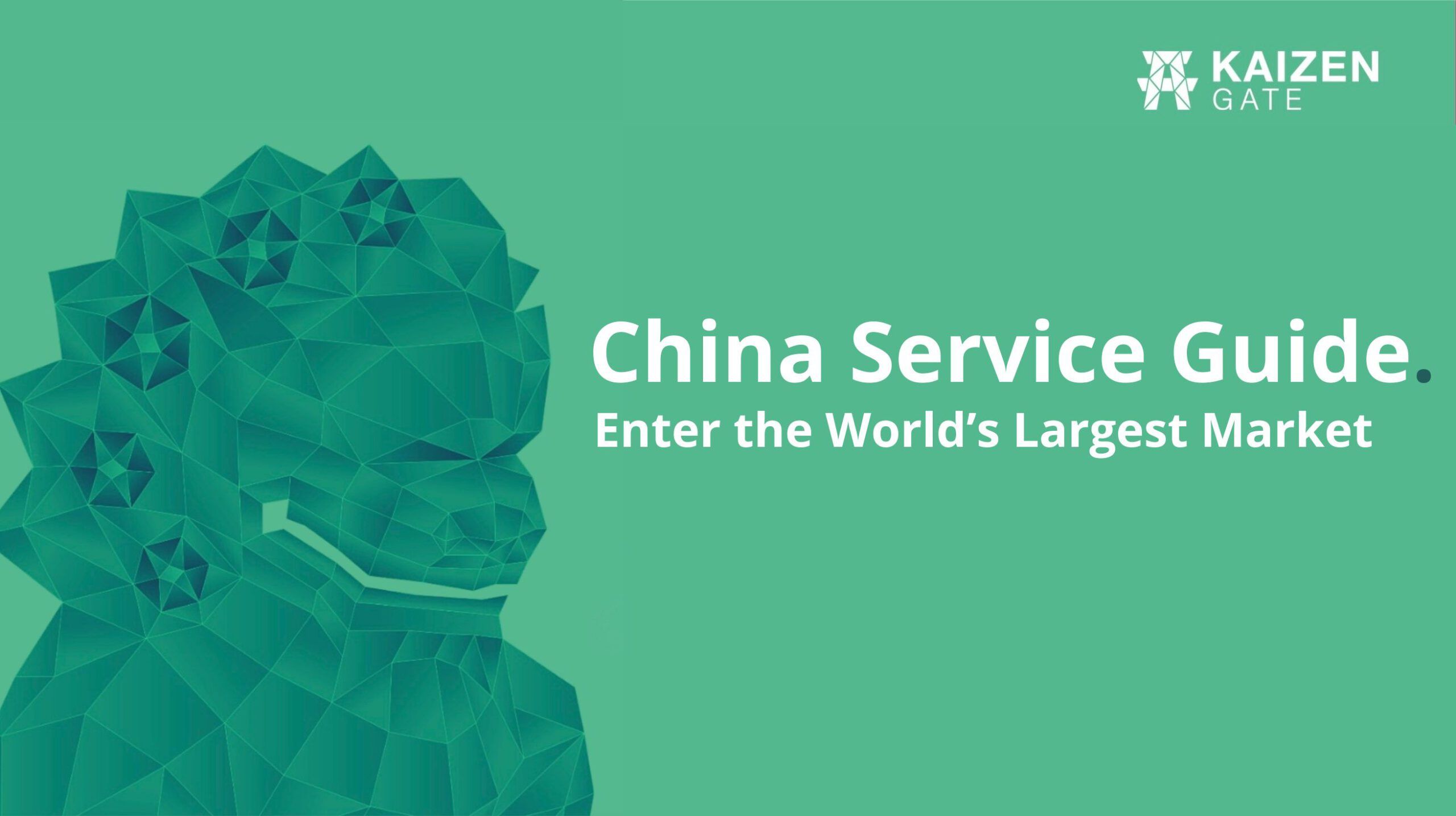Chinese Consumers and the World’s Largest E-Commerce Market
China is at the frontier of digital commerce, with an online shopping ecosystem unrivaled in size and innovation. With over 700 million Chinese consumers shopping online, that’s more online shoppers than the entire population of Europe, reflecting a commerce market that has become the world’s largest in size and penetration. For context, China’s online retail sales are higher than those of the US and UK combined.
Chinese consumers are mobile savvy, accustomed to seamless digital payments and “super-apps” like WeChat that integrate social media, shopping, and services into one experience. This huge consumer base is not only large but highly engaged. Shoppers in China expect high quality products, instant customer support, and innovative retail experiences such as live-stream shopping and KOL (Key Opinion Leader) recommendations.
They are also very open to buying foreign brands, especially when those brands are seen as high quality or unique. In fact, cross-border e-commerce platforms, where Chinese buyers purchase overseas goods online, has surged in recent years, supported by government initiatives and consumer demand for international products. If your brand can offer something distinctive or premium, there’s likely a segment of Chinese consumers eager to try it.
The Role of Tmall Global in Cross-Border E-Commerce
While the west is dominated by an Amazon’s monopoly, in China there are many competing E-Commerce portals. Among them, Alibaba’s Tmall and JD.com are the two largest platforms, representing more than two thirds of the whole national E-Commerce market.
Alibaba’s Tmall Global and JD Worldwide are the cross-border versions of each of these platforms and represent a vital gateway to reach Chinese consumers directly from your overseas warehouse. Launched in 2014, Tmall Global enables international merchants to sell directly to Chinese buyers from abroad, eliminating the requirement for a Chinese business license or even a local warehouse.
As the largest cross-border e-commerce platforms in China, Tmall Global and JD Worldwide host thousands of international brands, making it an essential channel for any business looking to enter the Chinese market, and for Chinese consumers to have visibility of foreign brands.
Why International Businesses Should Consider Cross-Border E-Commerce
For companies worldwide, entering the Chinese market via cross-border e-commerce is often the fastest, most flexible, and cost-effective approach. Key reasons include:
- Massive Customer Base: China’s online population offers virtually endless growth opportunities. Even capturing a tiny fraction of Chinese consumers can mean significant sales volume, given the sheer scale. For example, being on a platform like Tmall Global instantly puts your products in front of millions of daily active shoppers.
- Demand for International Brands: Chinese consumers have a strong appetite for international brands, perceiving many foreign goods (from luxury fashion to healthcare supplements) as reliable and high quality. Cross-border platforms allow you to capitalize on that demand even if you haven’t set up a physical presence in China. Many international heritage brands (from high street retailers to niche artisan producers) find enthusiastic followings in China due to their unique provenance.
- Lower Barrier to Entry: Traditional entry would require establishing a local company, dealing with complex regulations, and investing heavily upfront. In contrast, Tmall Global’s cross-border model lets you start selling without a local entity, simplifying compliance. You’ll still navigate import regulations for your products, but a Tmall Partner and Alibaba’s infrastructure can guide you through those requirements. Essentially, cross-border e-commerce lets you test the waters in China with relatively lower commitment and risk.
- Infrastructure and Support: Platforms like Tmall Global come with built-in logistics networks (e.g. Alibaba’s Cainiao for warehousing and delivery) and payment systems (Alipay) tailored to Chinese consumers. They also host major shopping festivals (Singles’ Day 11.11, 6.18 Mid-Year, etc.) that drive huge traffic. By participating via Tmall Global, UK brands can piggyback on these events and the platform’s marketing channels, greatly amplifying their reach.
What is Tmall, and Why is it Key for International Brands?
Tmall (owned by Alibaba Group) is China’s premier B2C online marketplace, essentially a gigantic virtual shopping mall where consumers buy directly from brands and authorized retailers. As of 2023 it accounted for ~37.6% of China’s cross-border e-commerce market, hosting 20,000+ foreign brands’ official stores. Far outpacing its rivals (JD Worldwide held ~18.7%, and others like Douyin Global trailed further behind).
For international brands aiming to succeed in China’s e-commerce, Tmall is often non-negotiable: it’s where the action happens. But there are different versions of Tmall and store types to understand:
Tmall vs Tmall Global vs Tmall Flagship Stores
- Tmall (Domestic): When people say “Tmall Classic” or just Tmall, they usually mean the domestic platform on Tmall.com that serves consumers in mainland China. To sell on this platform, a brand typically needs a legal entity in China, a Chinese business license, and products that are registered for sale in China. Many top international brands (like Nike, Apple, L’Oréal) have Tmall flagship stores on the domestic site, managed by either their China subsidiary or a local partner.
Tip: The advantage of the domestic Tmall is faster shipping (goods are in-country) and access to the full suite of Alibaba’s domestic consumer base, but the hurdle is that it requires establishing a local company or distributor.
- Tmall Global: This is the cross-border version which allows international brands with no local company to sell directly to Chinese consumers, using an overseas business entity and shipping directly from overseas. Shipping might take a bit longer (often 5–14 days unless you use a bonded warehouse in China), but many Chinese shoppers are willing to wait for certain imported goods.
Tip: It’s worth noting that this option is key for product categories not yet approved for general import to China (e.g. certain vitamins, niche cosmetics) which can still be sold via cross-border on Tmall Global, making it a valuable channel.
- Store Types on Tmall: Whether on domestic Tmall or Tmall Global, Alibaba offers various store formats. The most common and prestigious is the Flagship Store, which is the official store of a brand (opened by the brand owner or exclusive distributor). There are also authorized stores (resellers with brand authorization to sell a particular brand) and marketplace stores that might sell multiple brands.
Tip: For most businesses building brand presence, a flagship store is ideal as it signals authenticity to Chinese consumers. It’s important to know that opening a Tmall flagship (especially on Tmall Global) still requires an application process and meeting Alibaba’s criteria – a process typically facilitated by a Tmall Partner agency.
In short, Tmall Global vs Tmall Classic comes down to whether you have a local company and a registered product or not. If you’re new to China, Tmall Global is usually the entry point. As your China business grows, you might eventually transition to a domestic Tmall store once you establish a local entity and want faster logistics. Some brands even operate both, to reach a broader audience.
Overcoming Challenges When Entering the Chinese Market
While the opportunities are vast, entering China comes with its own set of challenges:
Customer Service Expectations
One major difference in China’s e-commerce culture is the customer service expectations. Chinese consumers are famously demanding when it comes to service speed and responsiveness. Shoppers often ask questions via live chat on Tmall before purchase, in fact, the overwhelming majority of consumers in China want to ask questions and speak with a brand rep during the buying process.
This means your Tmall store should ideally have customer service agents available in real-time, often late into the evening (given time zone differences with the UK) and certainly during peak shopping hours in China, as response time will affect the stores ranking in the marketplace, affecting store visibility.
Regulatory and Compliance Hurdles
Navigating China’s regulatory landscape, whether for cross-border or local sales, requires careful attention to product certifications, trademarks, and compliance standards. Working with an experienced partner can streamline these complex processes and ensure adherence to local requirements.
Marketing Strategy and Localization
Chinese consumer is especially sensible to authority as a persuasion mechanism. Brands lacking authority in China will rarely sustain sales growth over time. A Brand’s authority overseas does not guaranty authority in China, since internet users are rarely exposed to international content.
Developing localized authority is the second key action to perform after setting an online store. Localizing your brand message as well as establishing and managing collaboration campaigns with local influencers (KOLs) in key platforms like Douyin, Xiaohongshu, WeChat and Weibo, are crucial steps for success.
Logistics and Supply Chain Management
Chinese consumers expect fast, reliable delivery, and with a possibility to return the product within 7 days if not satisfied. Efficient logistics, including warehousing in bonded zones and a streamlined customs clearance process, are essential. Managing returns and reverse logistics further ensures customer satisfaction.
Steps to Success – How to Avoid Costly Mistakes
It is necessary to conduct due diligence and analyze the market situation specifically for your product category before making key decisions such as:
- What is the best route to market?
- What channels should I chose?
- How to localize marketing content?
- How to stand out from competitors?
- What is the ideal price point?
- How much investment do I need?
- How long to become profitable?
By following the next 3 simple steps your business can increase significantly the changes of quick success, avoiding costly mistakes or the need to change strategy later on, delaying growth and profitability:
1. Pre-Entry Audit:
Conduct an assessment of your business’s potential in China by analyzing the competitive landscape, market opportunities, and regulatory environment. This audit provides a clear picture of your readiness and identifies key areas to focus on.
2. Strategic Entry Plan:
Craft a customized 3 to 5 year market entry strategy aligned with your business’s current stage and long-term goals. This plan should cover all critical aspects, from market positioning and branding to product localization and regulatory compliance.
3. Execution & Growth:
Establish your local teams, launch your online stores (including your Tmall store), and initiates sales. They obtain and analyze the performance reports and extract insights to improve your strategy and drive continuous growth.
Conclusion – Is China the Right Market for Your Business?
Expanding into China presents enormous opportunities alongside unique challenges. With a well-crafted strategy, comprehensive market research, and the support of an experienced Tmall Partner, international businesses can confidently tap into China’s vast e-commerce potential. By leveraging platforms like Tmall Global and with the right local partners, your brand can navigate the complexities of the Chinese market and achieve sustainable growth.
Unlock China’s E-Commerce
Ready to tap into the opportunities in China’s massive digital marketplace? Get in touch with Gate Kaizen today to discuss how their one-stop solution can drive your growth.

Gate Kaizen is the trusted partner of large and mid-cap companies as a provider of market entry services and HR Solutions in the Chinese market. We help your business save the outsantding costs of setting up your local entity by leveraging our own structure and the shortcuts of the digital era to minimize the financial risks of expanding overseas. This way, you can focus your attention on what really matters: your business.
How We Can Help – End to End Digital and Offline Expansion
With expert guidance in digital expansion, offline sales support, and streamlined logistics, Gate Kaizen is your gateway to borderless growth in China.
How can we support your business growth in China and beyond:
- E-commerce & Digital Expansion:
Manage end-to-end online store operations, digital marketing, and customer support, ensuring your Tmall store is optimized for traffic and conversion while your brand resonates with Chinese consumers.
- Offline Distribution & Sales Support:
Assign experienced sales agents to represent your business locally, providing expert business development, competitor tracking, market entry guidance or and managing key account relationships among many other functions.
- Logistics & Supply Chain:
Facilitate customs handling, regulatory compliance, warehousing, distribution and reverse logistics, enabling you to import and distribute products in China without establishing a local entity.



